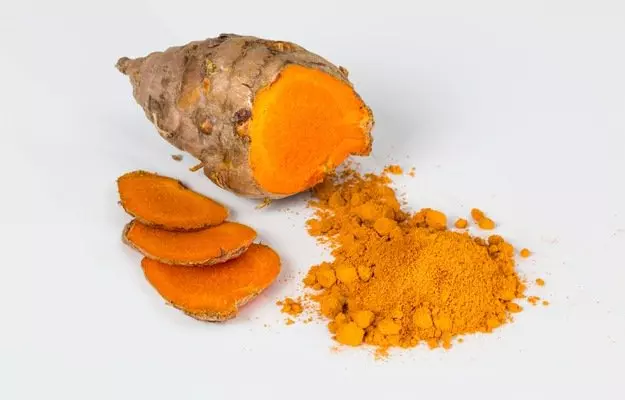Turmeric, a relative of ginger, is a spice that comes from the root of the Curcuma longa plant that grows in the tropical areas of South Asia. The roots of the plant are in the shape of bulbs that produce rhizomes. These are boiled, dried and then crushed into the familiar yellow powder which we call haldi.
The use of turmeric as a colouring agent and dyes dates back to 600 B.C. Turmeric has a long medicinal history in India as it has been in use in Ayurvedic medicine for various conditions such as breathing problems, rheumatism, body pain, and even fatigue. Turmeric is also used for dyeing clothes. In fact, Marco Polo compared turmeric to saffron in his notes when he travelled to China in 1280. In medieval Europe, turmeric was called the “Indian Saffron”.
Turmeric has a peppery bitter flavour and is sometimes used as a colouring agent in foods. It is used in canned products, baked products, dairy, juices, and other food products. Turmeric leaves are also used to wrap and cook food. These leaves tend to impart a distinctive flavour to the food.
Turmeric by itself is a miracle spice but when mixed with milk, its benefits can double. Turmeric milk or golden milk is prepared by heating milk and adding a spoon of turmeric powder to it.
India is the largest producer, consumer, and exporter of turmeric in the world. Turmeric from India is considered to be the best because of its high content of curcumin. India accounts for 80% of the total world production of turmeric.
Some facts about Turmeric
- Botanical Name: Curcuma longa
- Family: Turmeric belongs to the ginger family called Zingiberaceae
- Common Name: Turmeric, Haldi (Hindi)
- Sanskrit Name: Haridrā
- Parts Used: The roots or rhizomes are used in medicine and food
- Geographical Distribution: Mostly grown in South Asia, turmeric is found in India, Indonesia, China, Philippines, Taiwan, Haiti, Jamaica, Sri Lanka, and Peru.
- Interesting Facts: The name Curcuma Longa comes from the Arabic name for the plant, Kurkum. Also, turmeric is called Jiang Huang in Chinese.
























